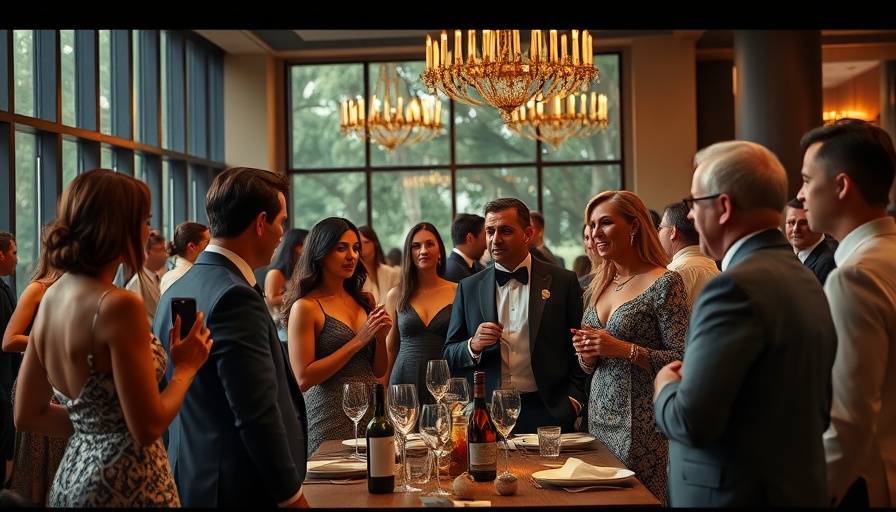
Understanding Luxury in a Digital Era
As the fashion industry evolves, the concept of luxury is not just about the price tag or brand name anymore. It’s an intricate mix of authenticity, story, and connection. Recently, Vogue Business hosted a dinner with Certilogo at the Maine Mayfair in London, where leading executives from luxury brands convened to discuss the growing importance of digital product passports (DPP) in ensuring product authenticity and enhancing customer experience.
The Rise of Digital Authentication
According to a recent Vogue Business Index, the adoption of digital authentication tools among top global luxury brands has jumped from 53% to 67% within just a year. This shift signifies a newfound commitment to transparency, especially in light of rising counterfeit concerns and a volatile economic environment that is shifting consumers' interests towards the resale market. As Anusha Couttigane, head of custom insights at Vogue Business, pointed out, embracing these tools instills confidence and helps consumers feel more connected to the products they buy.
Why Digital Product Passports Matter
Certilogo's CEO, Michele Casucci, emphasized that digital product passports are much more than a tool for traceability; they serve as a bridge between brands and consumers. These passports allow shoppers to access information about a product’s origins, craftsmanship, and authenticity, further enriching their purchasing experience. DPPs can also facilitate services like repairs, rental options, and even resale, creating a continuous relationship between consumers and brands beyond the initial sale.
Challenges of Circularity and Compliance
The dinner included discussions around the challenges luxury brands face in adopting sustainable practices while maintaining the high-end experience their consumers expect. Executives expressed concern about balancing new legislation compliance with consumer engagement. As sustainability becomes increasingly important, brands must find ways to integrate these practices into their operations and narratives seamlessly.
Expanding Consumer Engagement through Data
Today’s consumers are more vigilant about their data than ever. As brands collect and analyze shopper behavior to improve offerings, the challenge lies in creating personalized interactions that don’t compromise consumer privacy. Building trust with consumers necessitates transparency and a commitment to protecting their data while still delivering tailored experiences that meet their expectations.
Luxury's Social Connection
For American fashion enthusiasts, the collision of luxury and technology holds a compelling narrative. It’s about more than just owning a piece of clothing; it's about sharing its story—where it comes from, how it was made, and its journey to them. The events hosted by Vogue Business signal a broader trend of community and storytelling shaping luxury goods, aligning with a generation that values meaning and sustainability just as much as aesthetics.
Conclusion: The Future of Luxury is Both Digital and Human
The conversation around digital product passports and the authentication of luxury goods is just beginning. As the industry moves forward, it seems evident that the blend of technology and authentic interactions will shape the future. Luxury brands that embrace these changes will not only stand out in a crowded market but will also foster deeper connections with consumers looking for authenticity in their shopping experiences. For those engaged in fashion, staying informed about these trends means being part of a transformative moment in how luxury is defined and experienced.
 Add Row
Add Row  Add
Add 



 Add Row
Add Row  Add
Add 
Write A Comment